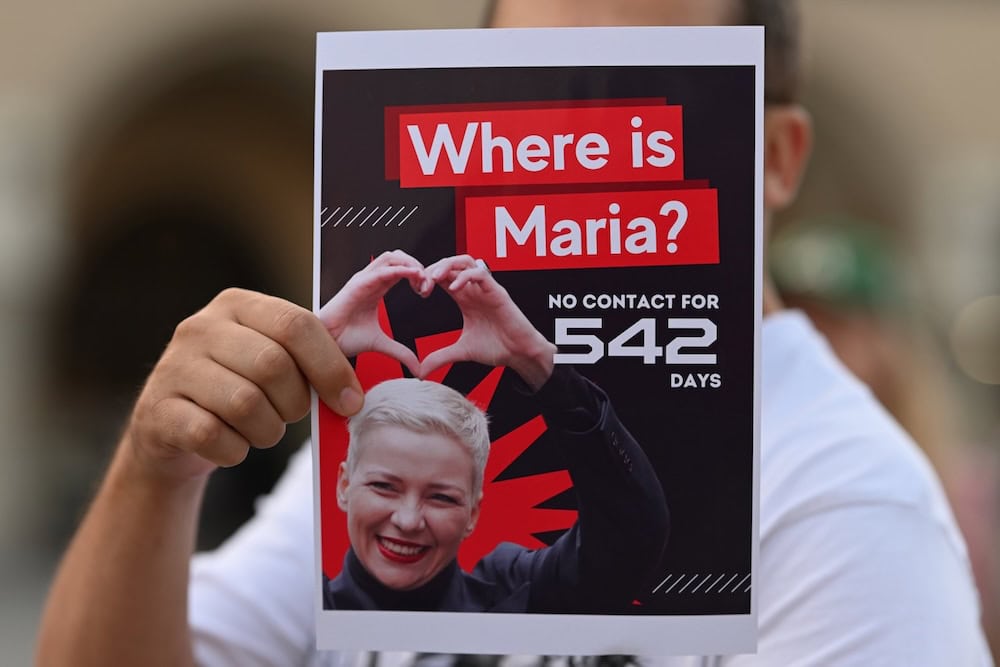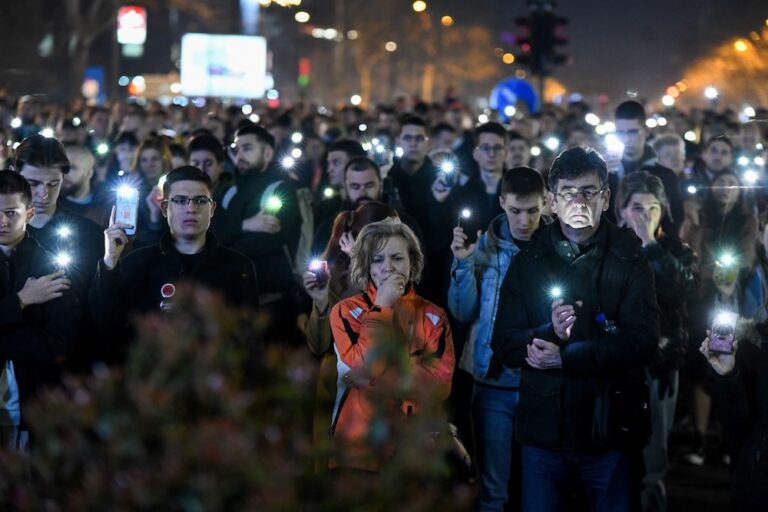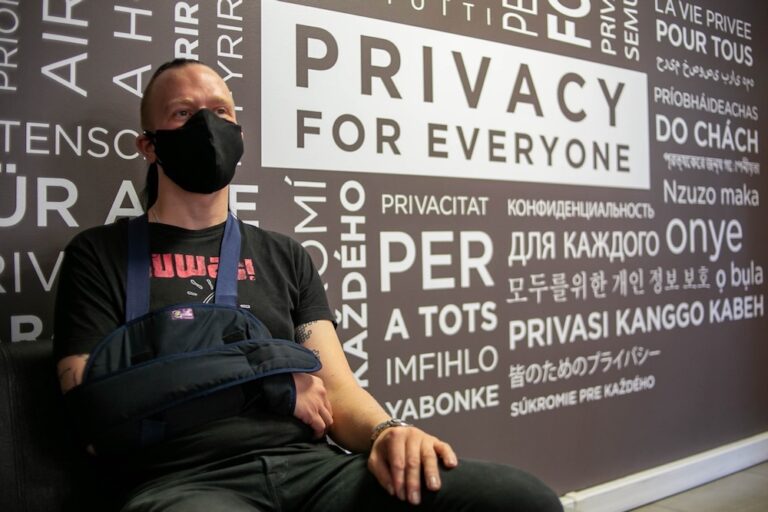September 2024 in Europe and Central Asia: A free expression round-up produced by IFEX's Regional Editor Cathal Sheerin, based on IFEX member reports and news from the region.
“Foreign agent” laws in the region; anti-LGBTQI+ legislation adopted in Georgia; an important step in the battle against impunity in Romania; death threats against a journalist in Turkey; a new anti-SLAPP campaign in the UK; and what’s at stake for human rights at COP29
Legislating to stifle civic space
An article published this month by Human Rights Watch’s (HRW) Iskra Kirova provides a useful summary of the ways that authoritarian governments have used so-called “foreign agent” laws to undermine civil society groups (CSOs) and stifle civic space.
“Foreign agent” laws are generally used to target groups that receive some funding from abroad and engage in (very loosely defined) “political activities”. Such legislation places restrictions on the activities of these groups, leaves them vulnerable to interference by the authorities, and – by labelling them as “foreign agents” – implies that they are working in the interests of a foreign power. These groups are often human rights defenders or independent media whose work challenges the policies of the authoritarian government.
The archetype of the “foreign agent” law was introduced in 2012 in Russia, where it has since been expanded as part of the authorities’ relentless crackdown on civil society and independent voices. Currently, there are over 700 entities on Russia’s list of “foreign agents”, where the designation has been used to harass, prosecute and jail journalists (the recently-released RFE/RL journalist Alsu Kurmasheva is a high-profile example). The Committee to Protect Journalists (CPJ) reports that August and September alone saw at least another five of these media “foreign agents” targeted by the authorities.
As Kirova notes, Russia’s bad example has been followed by other authoritarian governments, some of which have successfully introduced their own versions of the “foreign agent” law. April 2024 saw President Sadyr Japarov sign Kyrgyzstan’s “foreign representatives” law; the following month, Georgia’s parliament passed its own “foreign agent” legislation. However, the government of Republika Srpska (Bosnia and Herzegovina‘s Serb-led entity) – which had published a draft “foreign agent” law in April – announced it was withdrawing it in late May as a result of pressure from the EU.
But it’s not just authoritarians that are producing this kind of legislation. ARTICLE 19 recently called on the EU to scrap a proposed Directive on interest representation services on behalf of third countries. While recognising that “the Directive falls short of the level of sanctions and restrictions imposed by Russian legislation”, ARTICLE 19 argues that it “could have a serious impact on the rights to freedom of association and freedom of expression and shrink civic space”. As it stands, the current text of the Directive requires CSOs in EU countries to register if they receive funding from a foreign country and conduct “interest representation” for that country; they are also required to report on their funding and activities to the authorities, under penalty of sanctions.
Homophobia enshrined in law
Those authoritarian governments that introduce “foreign agent” legislation often also seek to introduce laws that specifically target LGBTQI+ people and groups. Frequently referred to as “gay propaganda” laws, this legislation prohibits the “promotion” of “non-traditional” relationships in various public fora, severely restricting the rights to freedom of expression and assembly. Here again, Russia is the forerunner.
This month saw Georgia adopt the ruling Georgian Dream Party’s homophobic legislative package that bans “LGBT propaganda”, same-sex marriage, and gender affirming medical treatment. As was the case with Georgia’s “foreign agent” legislation, President Salome Zourabichvili is expected to veto the law before it comes into effect and pro-government MPs are expected to override that veto.
A large group of Georgian CSOs have condemned this “legislation of hate”, which they emphasise would introduce censorship and restrict the right to free assembly and protest.
Georgia will hold parliamentary elections on 26 October 2024, and the Georgian Dream Party has been fuelling a homophobic culture war ahead of the vote.
The day after parliamentarians adopted the anti-LGBTQI+ legislation, a well-known trans model and TV presenter Kesaria Abramidze was murdered in Tbilisi. According to reports, the Ministry of the Interior said it was investigating a “premeditated murder committed with particular cruelty and aggravating circumstances on gender grounds”. A suspect has been arrested, and though the motive for the murder is as yet unknown, several activists have highlighted the climate of government-sponsored homophobia and trans-phobia in which the crime was committed.
An important step for safety of journalists and justice
September in Romania saw an important step in the battle against impunity.
A court ruled to re-open an investigation into a co-ordinated smear campaign that has targeted investigative journalist Emilia Șercan for two years. The campaign, which has included leaking her private photos and publishing them on social media, began after she revealed plagiarism by several high-ranking politicians.
The initial investigation, which was closed without prosecutions in November 2023, was criticised by IFEX members and other free expression groups for errors and unnecessary delays. There were also suspicions that police officers might have been involved in the campaign against Șercan.
Significantly, the judges who ruled this month to re-open the investigation linked the attacks on Șercan to her public interest journalism and raised concerns about possible police complicity in the leaking of her private photos.
Several IFEX members and local media outlets have written to the Romanian authorities to call for a “thorough, independent investigation”.
Held incommunicado, kept in limbo
In Belarus, September marked four years since opposition leader Maryia Kalesnikava was placed behind bars. She is currently serving an 11-year sentence on trumped-up national security and “extremism” charges, based solely on her political activism. Kalesnikava was placed on the KGB’s “terrorism” list in 2022, and for nearly two years she has been held incommunicado. There are concerns for her health following abdominal surgery in 2022; she has reportedly lost a lot of weight and been denied access to an appropriate diet for her condition. In May, Belarusian human rights group Viasna highlighted the plight of political prisoners with health conditions: in the last three years, six of these prisoners have died behind bars due to inadequate medical attention; another 254 prisoners with health conditions have been identified as at risk.
Belarusian filmmaker Andrei Hniot remains under house arrest and in legal limbo after an appeals court in Serbia announced this month that it had sent his extradition case to the Belgrade Higher Court for a third review. Belarus is seeking Hniot’s extradition from Serbia on dubious charges of tax evasion. Hniot was engaged in video production for the Free Association of Athletes SOS-BY, an organisation of athletes that took part in the anti-Lukashenka protests of 2020, and which is now designated an “extremist” group by the Belarusian authorities.
Nobel Peace Prize laureate and Viasna chairperson Ales Bialiatski saw another birthday behind bars this month. The human rights defender is currently serving a ten-year prison sentence on trumped-up charges related to his work. To mark his birthday, human rights activists held solidarity rallies in Belgium, the Czech Republic, Lithuania and Poland where they called on the Belarusian authorities to release Bialiatski and all political prisoners in Belarus. In 2023, Bialiatski was added to Belarus’s list of “extremists”.
In brief
Ahead of COP29, which will take place in Azerbaijan in November, IFEX members, human rights organisations and environmental groups issued a public statement highlighting the dire situation for civil society in Azerbaijan, and raising “grave concerns” about the ability of CSOs and environmental activists to participate freely and safely at the conference. The statement highlights the fact that hundreds of people are behind bars on politically-motivated charges, and that among these prisoners are journalists and climate justice activists. The signatories call on Azerbaijan to free all political prisoners. They also call on the United Nations Framework Convention for Climate Change (UNFCCC) Secretariat and member states to “ensure that the government of Azerbaijan does not inhibit individuals and groups critical of the government from participating in the conference and that the host government respects the rights of all participants to speak freely and to peacefully assemble inside and outside the conference venue”. HRW provides a useful Q&A on the human rights issues at stake at COP29.
The first six months of 2024 saw 756 media freedom violations in the region according to a new report by the Media Freedom Rapid Response (MFRR) mechanism. These violations – 474 of which were recorded in the EU, with the remainder taking place in candidate countries – affected 1,212 media-related persons or entities. Of the 756 incidents, 100 were physical attacks, 143 were committed by government and public officials, and 24.6% took place online (which was the most common forum in which violations took place).
IFEX members and free expression groups called on the authorities in Turkey to thoroughly investigate a year-long campaign of threats directed at journalist Murat Ağırel and his family, and to provide Ağırel and his loved ones with protection. The persecution is connected to the journalist’s work investigating money laundering, tax evasion and allegations of football match-fixing. It has included surveillance, death threats, and rape threats directed at his wife and other female members of his family. In early September, Ağırel received a video in which a masked individual said that a contract had been taken out on the journalist’s life.
The UK Anti-SLAPP Coalition launched a new campaign in September in response to the parliament’s ongoing delay in establishing anti-SLAPP protections. Kicking off the campaign, the Coalition sent spoof, SLAPP-style letters to every MP, using language taken from actual legal letters that have been sent to public watchdogs in the UK. The aim of the letter, according to Index on Censorship, “is to demonstrate to MPs how public watchdogs are being unduly targeted by legal threats and to demonstrate how aggressive those letters are. Legal threats are seldom seen in public as the target is often intimidated into silence”.



